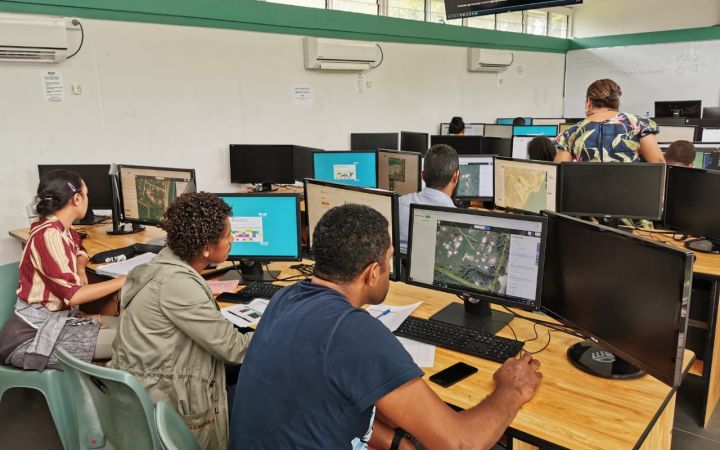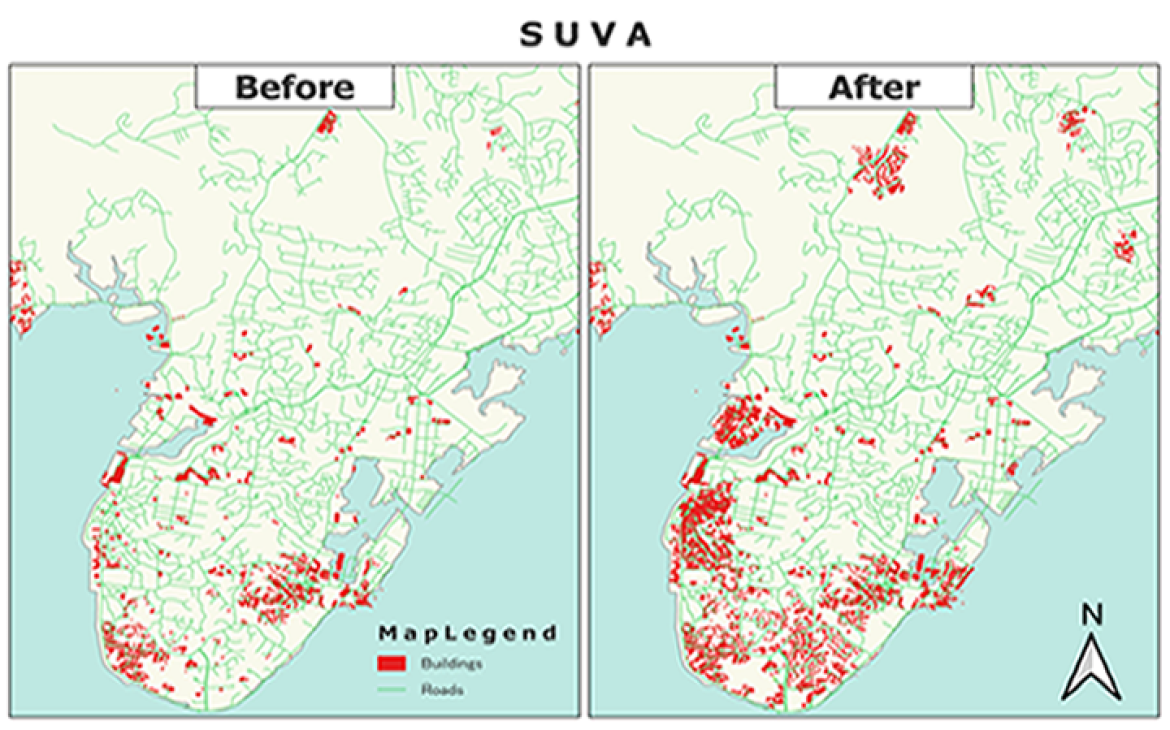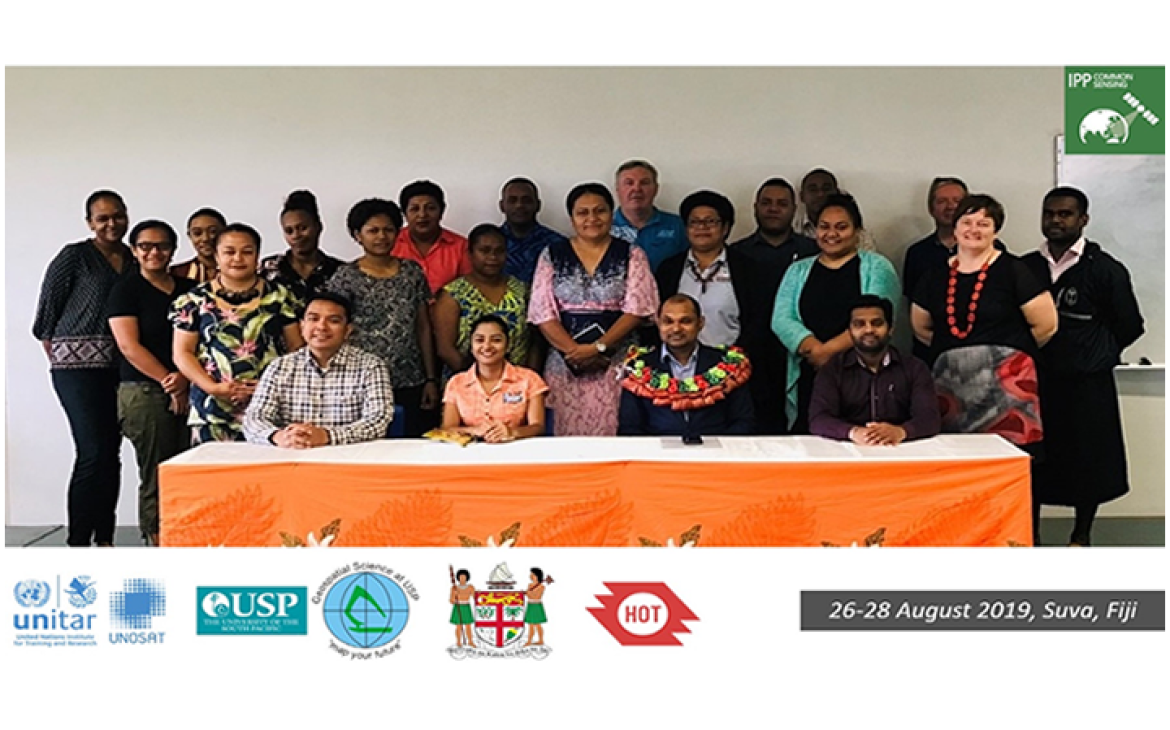13 September 2019, Suva, Fiji – Disasters caused by natural hazards and climate change affect about 350 million people on average each year, according to the Global Humanitarian Overview 2019 (UN-OCHA, 2019). The human cost tends to be higher in vulnerable areas of the Pacific SIDS, often due to the limited data available for preparedness and early response actions. To help address this issue in Fiji, UNOSAT and the University of the South Pacific (USP) teamed up for a 3-day mapathon which includes a training of trainers (ToT) workshop, from 26 to 28 August 2019 at the USP Lower Campus in Suva. The event took place in line with the CommonSensing project’s capacity development and sustainability action plans. Thanks to the support of Fijian government’s Ministry of Economy, many technical officials from a broad range of key ministries* benefited from this participatory learning opportunity.
The main objective of the mapathon was to engage the local government and academia in strengthening their awareness and capacity for mapping with high-resolution satellite data. A total of 51 participants, with a balanced gender ratio (F 40:M 60), were from relevant Fiji government agencies and USP Fiji’s School of Geography, Earth Science and Environment, as well as the Australian High Commission. Under the guidance of an expert invited from Humanitarian OpenStreetMap Team (HOTOSM) based in Indonesia, the participants mapped out key infrastructures in selected areas of Fiji using OpenStreetMap. In result, 12,494 buildings, 40 km of roads, 83 highways, 66 land-uses and 6 waterways were newly captured on the updated maps. Especially, the number of mapped buildings in Viti Levu and Vanua Balavu islands nearly tripled in only two days. These outputs will serve the climate resilience strategy of Fiji by providing enhanced baseline data.
All participants expressed high satisfaction, and about 96% of them reported that they were able to measure the significant progress towards achieving learning objectives through pre/post-training self-assessments.
“Thank you indeed for the Learning & Development Opportunity.” Saleshni Naidu, Director of Poverty Monitoring Unit, Government of Fiji
“Appreciate if this training can be conducted for more field personnel.” Jovesa Takiveikata, GIS Officer from Ministry of Women, Children & Poverty Alleviation, Government of Fiji
“The training conducted was very informative and applicable.” Tamarisi Koroijiuta, Student from USP
The missing map mapathon in Fiji made the most use of very high resolution (VHR) satellite imagery that were made available by UNOSAT as per CommonSensing solutions. Rich baseline data generated during the event will feed into the decision support tools presently being developed under the CommonSensing project (e.g. INFORM subnational index and exposure database for enhancing disaster risk reduction and climate change adaptation). Furthermore, local ownership and knowledge sustainability are expected to be improved by participants who completed the ToT. As certified trainers, they will be able to run replicated mapathons for other mapping champions in the region.
Adhering to the core principle of the 2030 Agenda for Sustainable Development “Leave no one behind”, UNOSAT will continue covering the needs of vulnerable communities while carrying out the CommonSensing project in the Pacific SIDS.
*Ministry of Lands and Mineral Resources, Ministry of Women, Children and Poverty Alleviation, Ministry of Agriculture, Ministry of Health and Medical Services, Ministry of Infrastructure and Transport, National Disaster Management Organization, Fiji Roads Authority and National Fire Authority.




